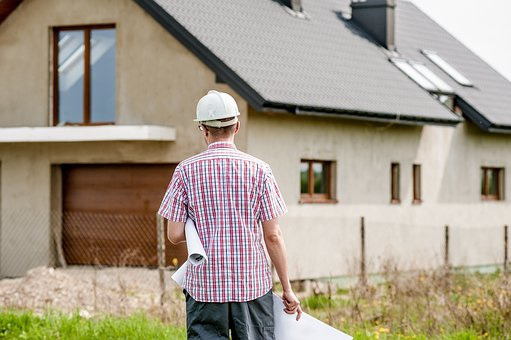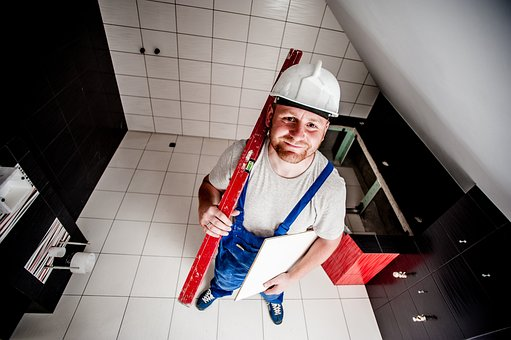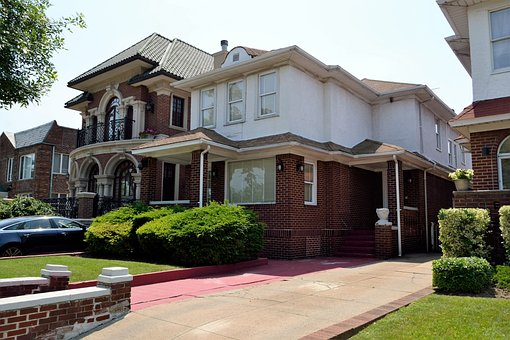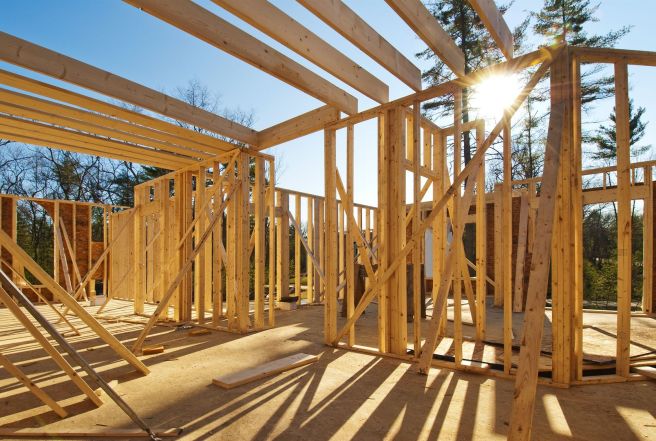Who Pays for Builders Risk Insurance: Owner, Contractor, or Lender?

A builder's risk insurance is a specialized type of property insurance that assists in protecting the buildings under construction - temporary structures. Buildings are subject to many different risks while under construction and therefore the builder’s risk insurance indemnifies against some of these particular losses.
The builder's risk insurance is essential in safeguarding construction projects; however, it can be misunderstood more often. A builder’s risk insurance policy helps in the protection of construction projects from certain kinds of property damage. Throughout the construction project, a project manager is the one who is responsible for the identification, assessment, and mitigation of risks within a project.
However, it is important to know that the insurance company does not pay for accidents and injuries that may occur at the workplace. Read this blog to know why having a structured builder's insurance policy from a reliable insurance agency is crucial in the avoidance of losses that might happen during construction. You can contact us today and request for standard property insurance form.

How Much Does Builder's Risk Insurance Cost?
If you are considering purchasing a builder's risk, the best figure is 1-5% of the total cost of the renovation, new construction, and the better of the project. However, the builder's risk cost is generally independent of the project's cost calculated by assessing the actual cash value.
While calculating the cost of the builder's risk, the essential cash value factors in wear and tear while the replacement cost replaces everything brand new. Besides the cost of the project, the insurance companies determine the cost of the builder's insurance by looking at;
The project location
The builder's risk cost will be increased for a project in areas with higher crime or near the ocean.
Construction Materials
Rare or more easily damaged materials will cost more to insure.
Supplemental Coverages
The builder's risk will result in premium charges for the added coverages not included in the primary insurance.

When is a Builders Risk Coverage Required
A builder's risk policy is most often required for many reasons, with the most obvious being the protection afforded by the developer in case there is a loss. Third parties, such as the project owner and lenders, stipulate that the builder carries a policy to protect their financial position.
Builder's risk insurance policy can be purchased on a wide range of projects, including the additions of existing homes and significant renovations. The builder's risk policy can be utilized for more risks, such as high-rise condominium or subdivision developments.

What Does Builder's Risk Insurance Cover?
Builder's risk insurance is a backbone of a successful risk management program. Builder's risk insurance provides coverage for the buildings and structures under construction. The main benefit of the builder's risk policy is property protection if anything goes wrong with the construction of a building and you do not have a builder's risk insurance.
A well-structured builders' insurance policy is essential as it helps protect construction projects from property damage due to;
-
Fire
-
Lightning
-
Hail
-
Explosions
-
Theft
-
Acts of God and vandalism.
Builder's risk policy also covers the following;
-
A builder's risk insurance covers the buildings and structures under construction, including temporary buildings and scaffolding.
-
It may also cover equipment that includes repairing damaged equipment as long as the policy covers the kits.
-
The materials and the supplies that are being used.
-
The construction signs, trees, and plants.
-
Ordinance and the law costs, or the increased cost required in the building codes and the
-
laws at the time of the loss.

Who Needs Builders' Risk Coverage
A builder's risk insurance helps protect your construction against specific property damage and helps cover additional costs or expenses that are not directly related to construction. The insurance also covers lost sales, rental income, other interest on loans, and real estate taxes.
A person or company with a financial interest in construction projects needs a builder's risk insurance. While paying for the builder's risk insurance, you need to include the following people in your policy;
-
Property owner
-
General contractor
-
Subcontractors
-
Lender
-
Architects
The purchasers of the builder's risk insurance coverage need to think about more than just the cost of the policy. There is also the need to know who needs the approach among the lenders and the one that will need to pay for the procedure for those that need to be covered.
Those that have the most significant financial interests in the property are the ones that shoulder the costs of the builder's risk insurance.
Who Pays for Builders Risk Insurance
The purchasers of builders' risk insurance need to think more than just the cost of the policy. Decisions must be made on who must pay for the builder's risk insurance. People with the most considerable financial interests in the property should be the ones that pay the highest cost of the builder's risk insurance.
In most cases, a person or a homeowner and the general contractor are the ones to pay for the builder's risk insurance. When buying builders' risk insurance, the purchaser must ensure that all the relevant parties are insured.
Therefore, the builder's risk insurance will cover all the parties working on investing in a project for the possible damages that may arise during the construction. Thus, who pays for builder's risk policies? The following people should be named in the construction or the renovation in the building risk policy;
Owners of the property
If anything happens that damages half of the unfinished businesses, the building owner is responsible for the loss. The owner will have to face the consequences accompanied by the high cost of the damage, including legal fees, architectural fees, and financing fees. Therefore, the property owner should be responsible for purchasing the builder's risk insurance if they want their property protected, which is not recommended.
The property owner may decide to purchase the construction insurance itself or enter into a construction agreement with the general contractor meaning that the general contractor is the one responsible for the placement of the policy. Property owners should also purchase an owner's interest policy as their general liability.
An owner's interest policy helps protect the owner in case one gets hurt, tripped, or falls on the pavement while the construction work is underway.
Developers
Much like the general contractors, the developer of properties is typically responsible for the larger share of interest required in protecting the property. The lack of a good builder's risk insurance policy on the part of the contractor could put the owner at risk of a financial loss if they must pay for the damages of the completed portions of the ongoing project.
Any contractor or subcontractor that is working on the project
When a developer or the owner hires a contractor, they are playing the peace of mind that the contractor will take care of all the aspects of the construction. Within these responsibilities lies the purchase of insurance for the project, commonly called the builder's risk insurance. Builder's risk insurance is essential for general contractors doing new buildings and renovations.
The builder's risk insurance manages the risk construction project and ensures that the project is completed on time. A builder's risk insurance is essential for the general contractors doing renovations.
A general contractor will always invest in a builder's risk to protect their tools. A builder's risk insurance helps compensate the contractor for equipment and tools that may have been left on the site. Builder's risk insurance is essential as it covers theft, wind, hail, rain, and other causes of damage or destruction.
If damage from an accident was to affect an area, the builder's risk policy could cover the losses along with the general contractor and the owner.
The Bank
Like the owner, a bank funding the project should be part of the builder's risk. In case a financial loss occurs, the financial institution loaning money will offer them protection from the financial losses if an unexpected risk occurs.
Builders Risk Providers
Builders' risk is highly specialized; therefore, it is best to buy coverage through insurance. When purchasing a builder's risk insurance, it is recommendable to shop for a policy through an insurance broker familiar with the industry. Builders' risk insurance is temporary in nature and it is meant to protect the insured during construction.
What is the difference between builders risk and general liability?
Builders risk insurance and general liability insurance are two different types of insurance that provide coverage for different risks in the construction industry.
Builder's risk insurance is designed to protect the owner, contractor, and other parties involved in a construction site project against property damage or loss. It covers the structure being built, as well as materials and equipment used during construction. This type of insurance can also provide coverage for unexpected events, such as fire, theft, vandalism, or natural disasters.
On the other hand, general liability insurance is designed to protect against claims of bodily injury or property damage caused by the contractor or other parties involved in a job site project. It covers third-party claims for damages, such as slip and fall accidents or damage to neighboring property. It can also provide coverage for legal fees and other expenses associated with defending against a claim.
Conclusion
It is crucial for anyone with a financial interest in the construction project, including the property owner, contractors, and subcontractors, to buy a builder's risk policy. Builder's risk insurance is one of the best risk management programs.
Builder's insurance risk is essential when a building is being renovated or constructed; they are vulnerable to significant risks, including theft, wind damage, lightning or hail, and damage that vandals could cause. Construction sites are susceptible to substantial risks that standard commercial policies may not cover.
Construction projects are easy to significant risks that property policies may not cover. To mitigate the risks, the builder's risk coverage should be a consideration for any new construction or project that needs to be renovated. Unlike the typical commercial property, builder's insurance risk fills a gap in providing coverage for the period before a project is ready for use by the occupancy.

